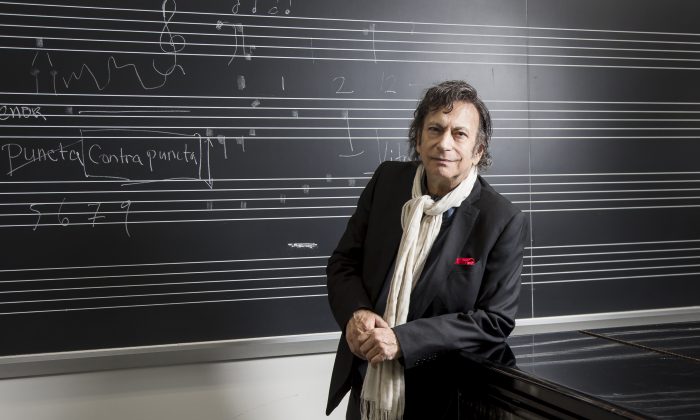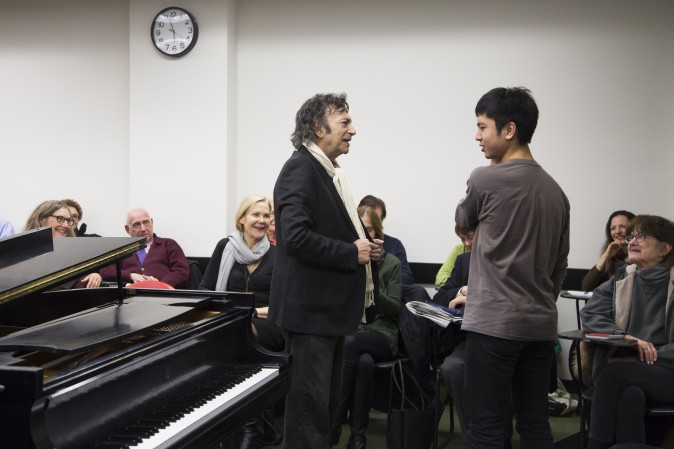Wisdom Wednesdays: Surviving Self Assessment
/I'm loving these images from the Consulting Random Work Generator. They're too true, too good.
Welcome to Wisdom Wednesdays, a series in which I recount the things people have said to me that have changed the way I think. The beauty of wisdom is that it often comes from unexpected places, and I’m pretty sure the people who gifted me these pearls didn’t even realize they were doing so …. So if I call you out by surprise, my apologies! It’s really your own fault for being so profound.
Here we go.
The Topic: Self-evaluation.
The Guru: Mitch, a cellist.
Evaluating yourself can be unpleasant in any field. As a consultant, I had to fill out a performance review at the end of every case, listing what I did and didn’t do well and how I could improve. It was annoying, but ultimately it wasn’t a big deal because what really mattered was what my superiors wrote about me. So I usually just put in a few generic statements using buzzwords that might please the higher-ups: “QC more.” “Go for the deeper dive.” Etc.
My last consulting performance review. I can't decide if "Quiet, but ruthlessly efficient" is what I want on my tombstone, or what I want in a dishwasher.
Writing about yourself is annoying, but watching or listening to yourself is definitely worse. Prior to becoming a musician, I had to do this very rarely. Once, I had to review a video of me giving a mock opening statement in a legal writing class. I also once listened to a recording of a radio interview I did about my research in South Africa. I can’t say I learned anything from these reviews - it was more out of curiosity to see if anything egregious happened.
As a musician, self-evaluation - in the form of reviewing your own recordings or videos - is more involved and, for me at least, agonizing. It’s painful for many reasons. For instance, after hours in a recording studio doing multiple takes of everything to get it right, the last thing I want to do is relive every second again. At that point, I can’t even hear straight anymore. When reviewing a recording of a live performance, I am loathe to destroy the magic of the experience - the recording will undoubtedly be scrubbed of the electric spirit of the live setting. Furthermore, all the things that didn’t go as well as I wanted are now etched in stone (of the digital HD variety) for perpetuity. Ugh.
Nevertheless, there are many times where such self-review is necessary, especially as a student, when there are countless applications for auditions, competitions, and festivals. As a masters student, I applied to many chamber music festivals, which often require audition tapes of solo and chamber repertoire. One fall, I was reviewing my videos from prior festivals to see which might be best to send in. That past summer, I had been a pianist at the Norfolk Chamber Music Festival, a wonderful program run by Yale in the middle of nowhere Connecticut. One of the pieces I had performed was the Schumann Piano Quartet in E-flat; my group consisted of three fantastic string players, who were also awesome people (my favorite kind of group). We were coordinating the sharing and editing of the video file, and kvetching about the process. Actually, I was whining, and I probably said something like, “Ugh, I hate watching videos of my own performances. It’s never good enough.” I expected the others to reflect my misery, but instead, Mitch, the cellist, looked at me with genuine bemusement and said, “Why? I’m already better than I was then. Even if I made a recording a week ago, that represents what I did then. I’m past that now.”
I was startled enough to stop complaining (momentarily). Here was a way of thinking that had never occurred to me. I had only thought of recordings as potential failures - there was always something I could do better, always moments of disappointment, always ways in which I fell short of my ideal. In essence, I only used recordings to judge myself against some impossible standard (I’ve written about this before in another context - notice a theme yet?).
What Mitch was suggesting in his offhand, honest response, was that we can and should use feedback as an opportunity for growth and encouragement. The growth part is already evident to most musicians - when watching or listening to yourself, you immediately notice from that more impartial vantage point things you’d like to change and observations you couldn’t have made in the moment. Regular recording and review is utterly indispensable to any musician, and we all know that.
However, the growth benefits are for many of us still dwarfed by the fear of failure, of being faced with our shortcomings. This week’s guru suggested that we lessen that discomfort by adopting the novel idea that every recording is an opportunity for self-encouragement. This is not some fluffy self-talk: the beauty of this idea is that it’s true! Indeed, no matter how I think the performance went, I am better for having done it. We inevitably learn from the act of performing under pressure, whether that is for a live audience or studio microphone, and if we continue to practice in the days following, we are both subconsciously and consciously incorporating those learnings into our craft. As we put in the work, we are better, day after day, than we were before, and the act of recording or performing has propelled us even faster down that path!
From that perspective then, the recordings are just markers in time - chances to practice the art of performing, to integrate what we have learned, to acknowledge our progress since earlier markers, and to chart the course towards a better self.
I know: easier said than done, especially for the perfectionists amongst us. I recently received videos from a live performance and immediately started compiling a list of self-doubts: the repertoire was new! the piano wasn't as I expected in the lower register! I missed those notes! Etc. These reflexes are hard to change, but if I shelve the video, I won’t have a chance to see the ways in which I am already past that moment in time. In the area of self-assessment then, as in all parts of my life, I need to develop more of a growth, rather than standards, mindset. It helps that in music, comparing yourself to a perfect standard completely misses the point.
To that end, here’s a selection from that recital: Scriabin’s Etude in E Major, Op. 8 No. 5. Onwards and upwards!










